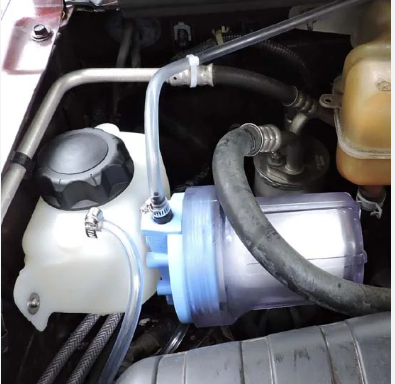Hydrogen Generator for Cars: Key Insights and Considerations

A hydrogen generator for cars is an advanced device designed to improve vehicle performance and fuel efficiency by incorporating hydrogen into the fuel system. This technology aims to enhance combustion, reduce emissions, and potentially increase fuel economy. Below, we explore how these systems work, their benefits, and important considerations for their use.
1. How Hydrogen Generators for Cars Work
1.1 Operating Principle
- Electrolysis Process: Most hydrogen generators use electrolysis to produce hydrogen gas. This involves splitting water (H₂O) into hydrogen (H₂) and oxygen (O₂) by passing an electric current through it.
- Hydrogen Injection: The generated hydrogen is then introduced into the engine’s air intake or directly into the combustion chamber. This helps in achieving more complete combustion of the fuel.
1.2 System Integration
- Installation: Hydrogen generators are typically installed in the engine compartment or close to the air intake system. The installation can vary based on the vehicle model and the type of generator.
- Control Mechanisms: Advanced systems come with control mechanisms to adjust the hydrogen supply according to engine needs, optimizing performance and efficiency.
2. Benefits of Hydrogen Generators for Cars
2.1 Enhanced Fuel Efficiency
- Better Combustion: By promoting more complete combustion, hydrogen generators can increase fuel efficiency and improve miles per gallon (MPG).
- Reduced Fuel Consumption: Efficient fuel burning can lead to a reduction in the amount of gasoline or diesel used.
2.2 Emission Reduction
- Lower Emissions: Hydrogen aids in reducing harmful emissions such as carbon monoxide (CO), nitrogen oxides (NOx), and particulate matter.
- Cleaner Exhaust: More efficient combustion results in cleaner exhaust gases, contributing to a lower environmental impact.
2.3 Improved Engine Performance
- Smoother Operation: Hydrogen can enhance engine smoothness and responsiveness, leading to a more enjoyable driving experience.
- Reduced Engine Deposits: Cleaner combustion can minimize carbon build-up in the engine, potentially reducing maintenance needs.
3. Considerations and Challenges
3.1 Cost and Installation
- Initial Costs: The price of hydrogen generators and their installation can be high, depending on the system’s complexity and the vehicle.
- Installation Requirements: Proper installation is crucial and might require professional assistance to ensure optimal performance.
3.2 Efficiency and Performance
- Variable Results: The effectiveness of hydrogen generators can differ based on the vehicle type and driving conditions. Some users might notice significant improvements, while others may experience modest benefits.
- Calibration Needs: Regular testing and adjustment are necessary to maintain system efficiency and performance.
3.3 Maintenance and Safety
- Maintenance Requirements: Hydrogen generators need regular maintenance to ensure reliable operation and safety.
- Safety Concerns: Hydrogen is a flammable gas, so adhering to safety protocols during installation and use is essential to prevent hazards.
4. Market Trends and Future Prospects
4.1 Increasing Adoption
- Growing Interest: As environmental awareness rises, more drivers are exploring hydrogen generators to enhance fuel efficiency and reduce emissions.
- Technological Progress: Ongoing advancements aim to make hydrogen generators more efficient, affordable, and safer for automotive applications.
4.2 Hybrid Technologies
- Combination Systems: Hydrogen generators are increasingly being used in hybrid systems that integrate traditional fuels with alternative energy sources for improved overall performance.
4.3 Supportive Policies
- Government Incentives: Various regions offer incentives for adopting green technologies, which can help mitigate the costs of hydrogen generators.
5. Conclusion
A hydrogen generator for cars offers a promising solution for improving fuel efficiency and reducing emissions. While these systems can enhance combustion, lower fuel consumption, and provide cleaner exhaust, they also involve challenges related to cost, installation, and maintenance. As technology evolves and market adoption increases, hydrogen Generador de hidrógeno para auto
generators could become a more practical option for those seeking to optimize vehicle performance and contribute to environmental sustainability.
- Industry
- Art
- Causes
- Crafts
- Dance
- Drinks
- Film
- Fitness
- Food
- Oyunlar
- Gardening
- Health
- Home
- Literature
- Music
- Networking
- Other
- Party
- Religion
- Shopping
- Sports
- Theater
- Wellness
- News


